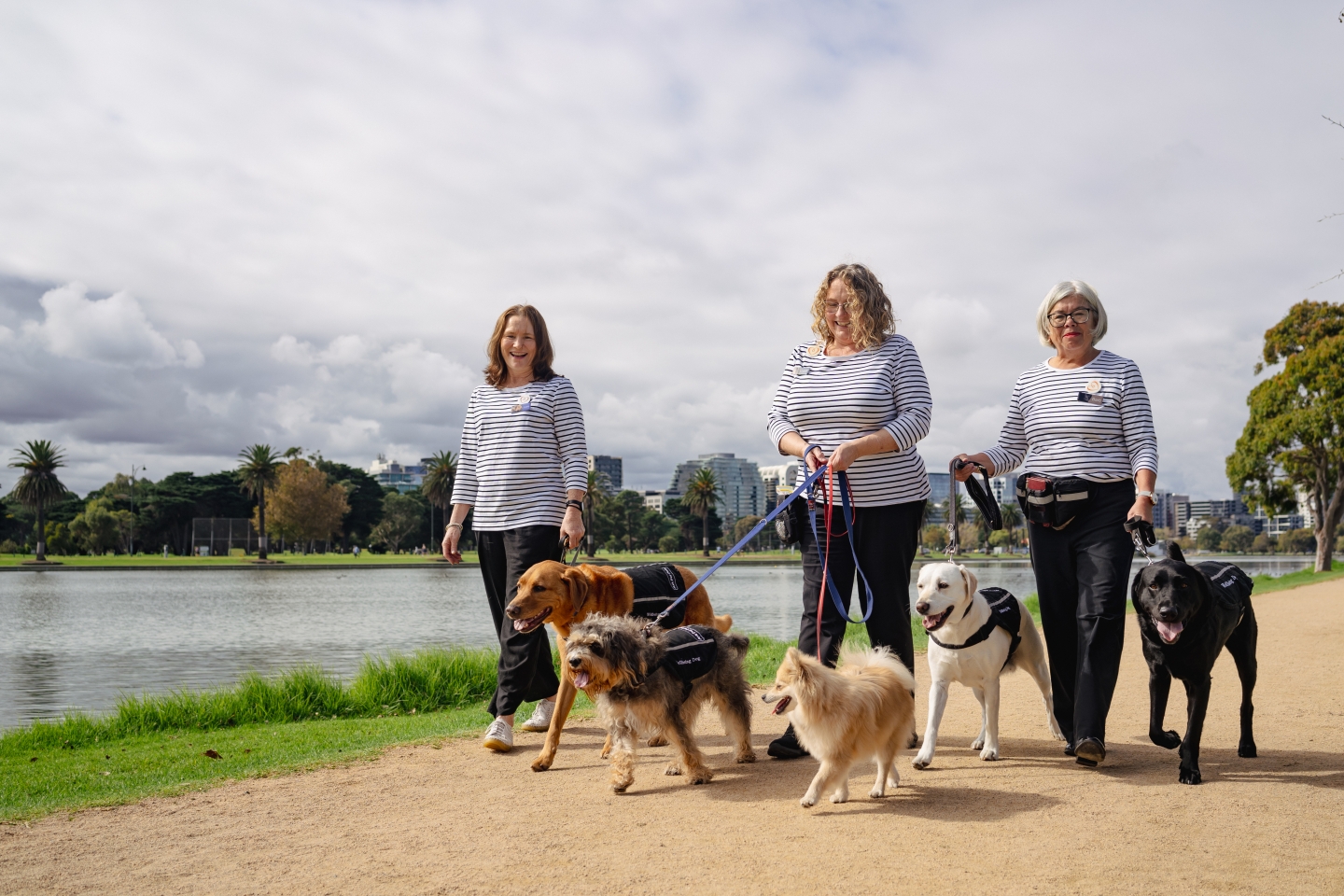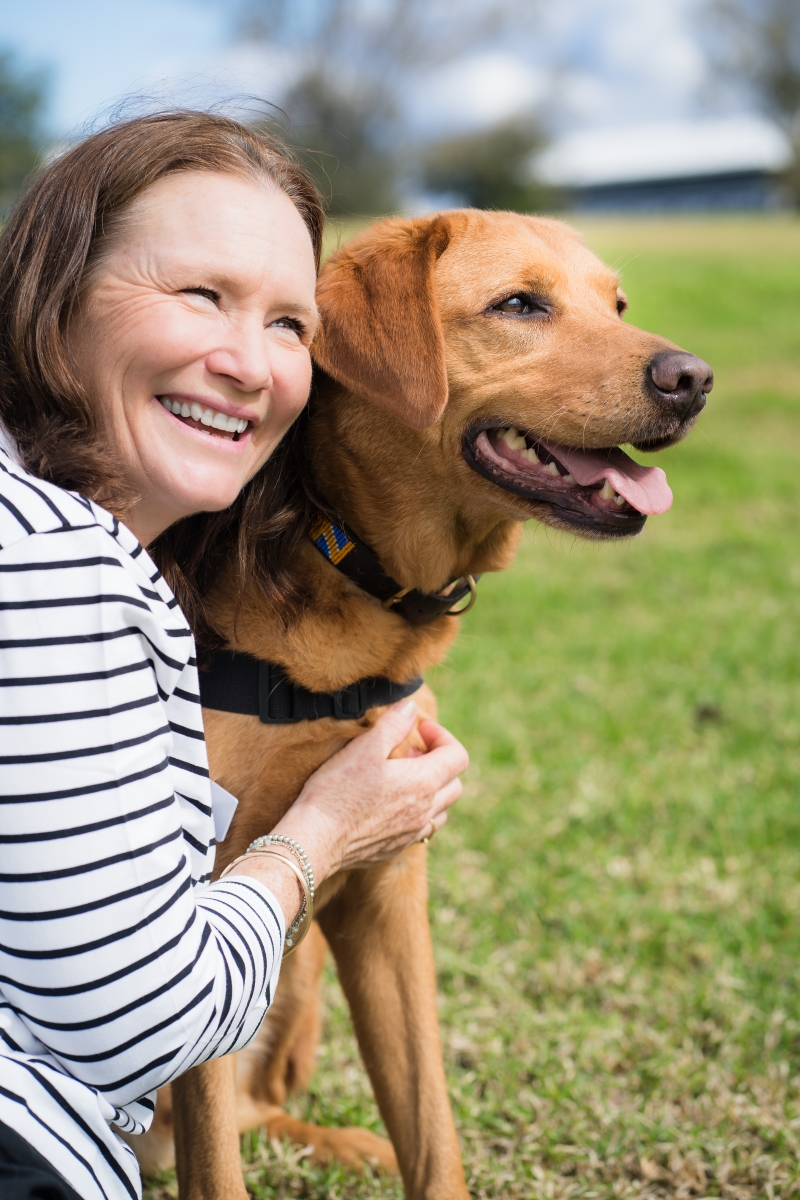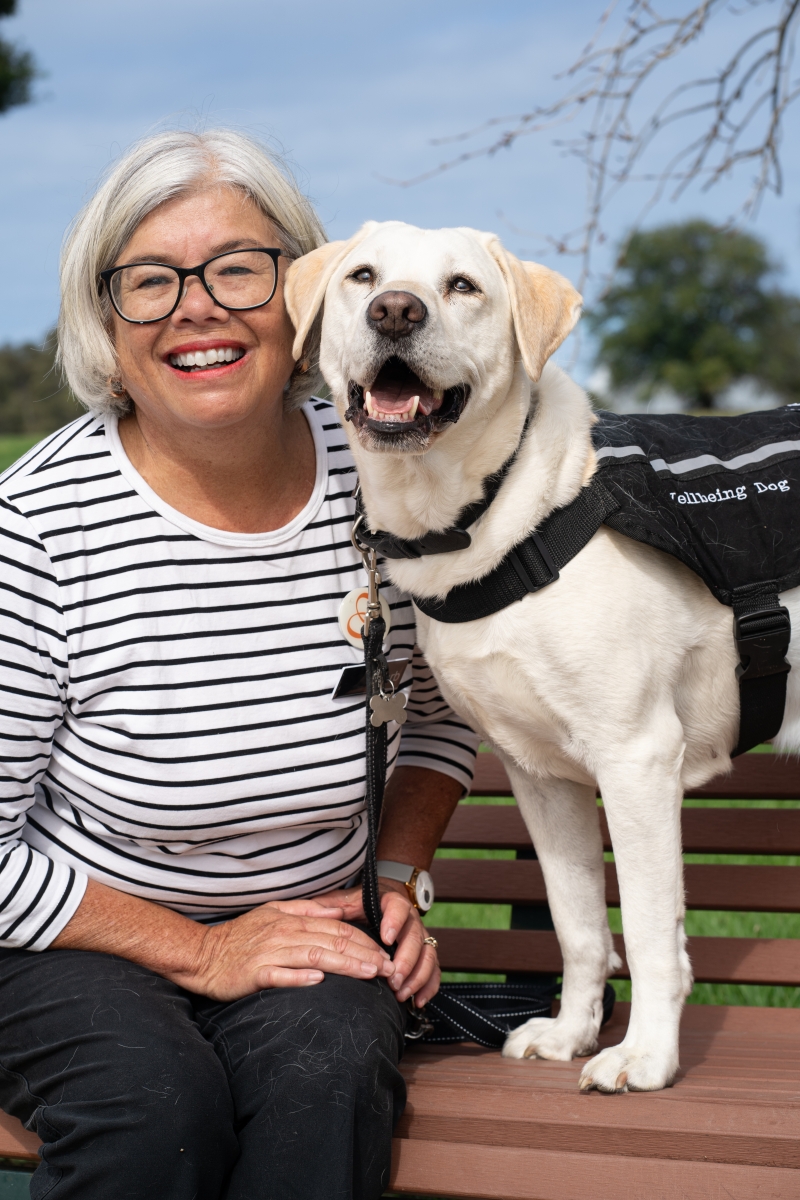Embracing the human-animal bond
Established by long-standing philanthropists and animal advocates, Stephen Sedgman OAM and Lynette Sedgman OAM, The Unconditional Love Foundation (previously Animal Welfare Foundation of Australia) exists to honour and share the fulfilment that happens when humans and animals connect.
Our mission might sound lofty, but it is about creating moments of real connection and joy.
To achieve our aim, we deliver our human-animal wellbeing program across classrooms and communities to support those in need, while equally engendering empathy for animals.
The reciprocal nature of this connection – the human-animal bond – underpins everything we do and sets our work apart.
1996 Stephen and Lynette Sedgman establish Animal Welfare Foundation of Australia (AWFA) to support animal welfare and animal empathy education. | 2020 AWFA evolves to become The Unconditional Love Foundation (UCLF) focusing on sharing the wellbeing impacts of the human-animal bond. | 2021 UCLF delivers its first human-animal wellbeing program in schools and community groups in Victoria. | 2023 Stephen and Lynette Sedgman awarded Order of Australia Medals for their extensive philanthropic contribution to the community. |

Creating a more compassionate world through connection with animals
Through the human-animal bond, we help young people and adults in need experience the world differently. Connecting with and developing empathy for animals creates bonds, boosts confidence and brings joy at a time when it is needed most.
Bringing unconditional love to life
At our heart are our people and wellbeing dogs who bring unconditional love to life. Their extensive animal-assisted wellbeing experience make them rare experts in an area that is only starting to fully appreciate the profound impact of human connection with animals.
Berry Street Education Model (BSEM) trained, our team is skilled in trauma-informed principles and practices customising program delivery to participants' needs.


Unconditional love and what it means to us
There has never been a time in humanity’s recent history where people have felt more disconnected and when emotional, social and mental health issues have been more keenly felt.
A lack of joy and connection impacts some more than others – principally those who may not have the resources or capacity to get the help they need. They are the people who perhaps need unconditional love the most.
By connecting people and animals and putting their wellbeing on equal footing, we find that people start to experience the world differently.
Developing empathy for animals, people begin to open up, empathise with peers, are better able to understand and regulate their own emotions, and mutual wellbeing benefits can be realised. Both human and animal can grow and thrive together.
While the advantages of human-animal interaction are well documented, it is our ‘animal-first’ approach that makes us different.
Our animals are ethically trained and cared for by our colleagues who understand animal wellbeing in its modern guise. Where the emotional and social needs of our animals are considered, along with the physical ones.
We call our animals ‘wellbeing dogs’, not ‘service dogs’; they are not servile in any way. We give our animals choice. They are not forced into a situation in which they feel uncomfortable. If our dogs show signs of not wanting to engage, we do not let them.
After all, the happier the animal, the more chance there is of a happy human. Because that’s what it’s always been about, and always will be about: reciprocity.
By establishing two-way empathy and creating real connection, both human and animal benefit.
To us, that is what brings unconditional love, to life.


